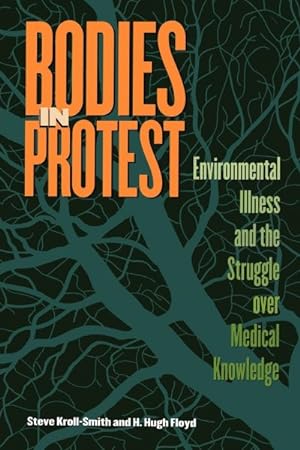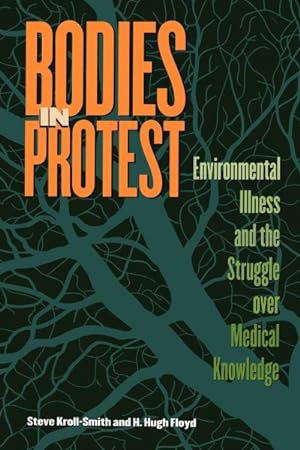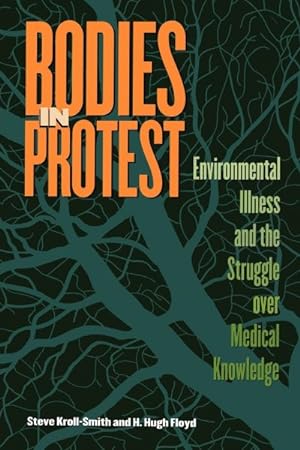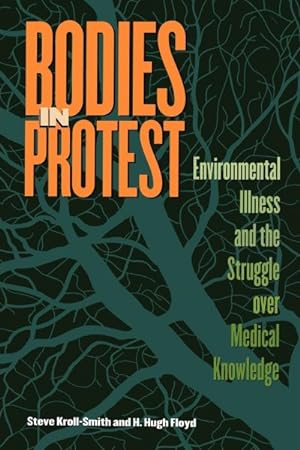kroll smith steve floyd hugh (12 Ergebnisse)
Suchfilter
Produktart
- Alle Product Types
- Bücher (12)
- Magazine & Zeitschriften (Keine weiteren Ergebnisse entsprechen dieser Verfeinerung)
- Comics (Keine weiteren Ergebnisse entsprechen dieser Verfeinerung)
- Noten (Keine weiteren Ergebnisse entsprechen dieser Verfeinerung)
- Kunst, Grafik & Poster (Keine weiteren Ergebnisse entsprechen dieser Verfeinerung)
- Fotografien (Keine weiteren Ergebnisse entsprechen dieser Verfeinerung)
- Karten (Keine weiteren Ergebnisse entsprechen dieser Verfeinerung)
- Manuskripte & Papierantiquitäten (Keine weiteren Ergebnisse entsprechen dieser Verfeinerung)
Zustand Mehr dazu
- Neu (6)
- Wie Neu, Sehr Gut oder Gut Bis Sehr Gut (2)
- Gut oder Befriedigend (4)
- Ausreichend oder Schlecht (Keine weiteren Ergebnisse entsprechen dieser Verfeinerung)
- Wie beschrieben (Keine weiteren Ergebnisse entsprechen dieser Verfeinerung)
Einband
Weitere Eigenschaften
- Erstausgabe (Keine weiteren Ergebnisse entsprechen dieser Verfeinerung)
- Signiert (Keine weiteren Ergebnisse entsprechen dieser Verfeinerung)
- Schutzumschlag (Keine weiteren Ergebnisse entsprechen dieser Verfeinerung)
- Angebotsfoto (8)
- Keine Print-on-Demand Angebote (12)
Sprache (1)
Gratisversand
Land des Verkäufers
Verkäuferbewertung
-
Bodies in Protest: Environmental Illness and the Struggle Over Medical Knowledge
Verlag: New York University Press, 2000
ISBN 10: 0814747523 ISBN 13: 9780814747520
Sprache: Englisch
Anbieter: ThriftBooks-Atlanta, AUSTELL, GA, USA
Paperback. Zustand: Very Good. No Jacket. May have limited writing in cover pages. Pages are unmarked. ~ ThriftBooks: Read More, Spend Less 0.7.
-
Bodies in Protest : Environmental Illness and the Struggle over Medical Knowledge
Verlag: New York University Press, 1997
ISBN 10: 0814746624 ISBN 13: 9780814746622
Sprache: Englisch
Anbieter: Better World Books, Mishawaka, IN, USA
Zustand: Good. Former library book; may include library markings. Used book that is in clean, average condition without any missing pages.
-
Bodies in Protest : Environmental Illness and the Struggle over Medical Knowledge
Verlag: New York University Press, 1997
ISBN 10: 0814746624 ISBN 13: 9780814746622
Sprache: Englisch
Anbieter: Better World Books, Mishawaka, IN, USA
Zustand: Very Good. Former library book; may include library markings. Used book that is in excellent condition. May show signs of wear or have minor defects.
-
Bodies in Protest : Environmental Illness and the Struggle over Medical Knowledge
Verlag: New York University Press, 1997
ISBN 10: 0814746624 ISBN 13: 9780814746622
Sprache: Englisch
Anbieter: Better World Books: West, Reno, NV, USA
Zustand: Very Good. Former library book; may include library markings. Used book that is in excellent condition. May show signs of wear or have minor defects.
-
Bodies in Protest : Enviromental Illness and the Struggle over Medical Knowledge
Anbieter: GreatBookPrices, Columbia, MD, USA
EUR 30,63
EUR 2,28 für den Versand innerhalb von/der USAAnzahl: Mehr als 20 verfügbar
In den WarenkorbZustand: New.
-
Bodies in Protest : Enviromental Illness and the Struggle over Medical Knowledge
Anbieter: GreatBookPrices, Columbia, MD, USA
EUR 33,44
EUR 2,28 für den Versand innerhalb von/der USAAnzahl: Mehr als 20 verfügbar
In den WarenkorbZustand: As New. Unread book in perfect condition.
-
Bodies in Protest
Verlag: New York University Press, US, 2000
ISBN 10: 0814747523 ISBN 13: 9780814747520
Sprache: Englisch
Anbieter: Rarewaves USA, OSWEGO, IL, USA
EUR 40,30
Kostenlos für den Versand innerhalb von/der USAAnzahl: Mehr als 20 verfügbar
In den WarenkorbPaperback. Zustand: New. Gulf War Syndrome: Is It a Real Disease? asks a recent headline in the New York Times. This question-are certain diseases real?-lies at the heart of a simmering controversy in the United States, a debate that has raged, in different contexts, for centuries. In the early nineteenth century, the air of European cities, polluted by open sewers and industrial waste, was generally thought to be the source of infection and disease. Thus the term miasma-literally deathlike air-came into popular use, only to be later dismissed as medically unsound by Louis Pasteur. While controversy has long swirled in the United States around such illnesses as chronic fatigue syndrome and Epstein-Barr virus, no disorder has been more aggressively contested than environmental illness, a disease whose symptoms are distinguished by an extreme, debilitating reaction to a seemingly ordinary environment. The environmentally ill range from those who have adverse reactions to strong perfumes or colognes to others who are so sensitive to chemicals of any kind that they must retreat entirely from the modern world. Bodies in Protest does not seek to answer the question of whether or not chemical sensitivity is physiological or psychological, rather, it reveals how ordinary people borrow the expert language of medicine to construct lay accounts of their misery. The environmentally ill are not only explaining their bodies to themselves, however, they are also influencing public policies and laws to accommodate the existence of these mysterious illnesses. They have created literally a new body that professional medicine refuses to acknowledge and one that is becoming a popular model for rethinking conventional boundaries between the safe and the dangerous. Having interviewed dozens of the environmentally ill, the authors here recount how these people come to acknowledge and define their disease, and themselves, in a suddenly unlivable world that often stigmatizes them as psychologically unstable. Bodies in Protest is the dramatic story of human bodies that no longer behave in a manner modern medicine can predict and control.
-
Bodies in Protest : Enviromental Illness and the Struggle over Medical Knowledge
Anbieter: GreatBookPricesUK, Woodford Green, Vereinigtes Königreich
EUR 35,35
EUR 17,02 für den Versand von Vereinigtes Königreich nach USAAnzahl: Mehr als 20 verfügbar
In den WarenkorbZustand: New.
-
Bodies in Protest : Enviromental Illness and the Struggle over Medical Knowledge
Anbieter: GreatBookPricesUK, Woodford Green, Vereinigtes Königreich
EUR 36,23
EUR 17,02 für den Versand von Vereinigtes Königreich nach USAAnzahl: Mehr als 20 verfügbar
In den WarenkorbZustand: As New. Unread book in perfect condition.
-
Bodies in Protest
Verlag: New York University Press, US, 2000
ISBN 10: 0814747523 ISBN 13: 9780814747520
Sprache: Englisch
Anbieter: Rarewaves USA United, OSWEGO, IL, USA
EUR 41,75
EUR 43,12 für den Versand innerhalb von/der USAAnzahl: Mehr als 20 verfügbar
In den WarenkorbPaperback. Zustand: New. Gulf War Syndrome: Is It a Real Disease? asks a recent headline in the New York Times. This question-are certain diseases real?-lies at the heart of a simmering controversy in the United States, a debate that has raged, in different contexts, for centuries. In the early nineteenth century, the air of European cities, polluted by open sewers and industrial waste, was generally thought to be the source of infection and disease. Thus the term miasma-literally deathlike air-came into popular use, only to be later dismissed as medically unsound by Louis Pasteur. While controversy has long swirled in the United States around such illnesses as chronic fatigue syndrome and Epstein-Barr virus, no disorder has been more aggressively contested than environmental illness, a disease whose symptoms are distinguished by an extreme, debilitating reaction to a seemingly ordinary environment. The environmentally ill range from those who have adverse reactions to strong perfumes or colognes to others who are so sensitive to chemicals of any kind that they must retreat entirely from the modern world. Bodies in Protest does not seek to answer the question of whether or not chemical sensitivity is physiological or psychological, rather, it reveals how ordinary people borrow the expert language of medicine to construct lay accounts of their misery. The environmentally ill are not only explaining their bodies to themselves, however, they are also influencing public policies and laws to accommodate the existence of these mysterious illnesses. They have created literally a new body that professional medicine refuses to acknowledge and one that is becoming a popular model for rethinking conventional boundaries between the safe and the dangerous. Having interviewed dozens of the environmentally ill, the authors here recount how these people come to acknowledge and define their disease, and themselves, in a suddenly unlivable world that often stigmatizes them as psychologically unstable. Bodies in Protest is the dramatic story of human bodies that no longer behave in a manner modern medicine can predict and control.
-
Bodies in Protest
Verlag: New York University Press, US, 1997
ISBN 10: 0814746624 ISBN 13: 9780814746622
Sprache: Englisch
Anbieter: Rarewaves USA, OSWEGO, IL, USA
EUR 125,84
Kostenlos für den Versand innerhalb von/der USAAnzahl: Mehr als 20 verfügbar
In den WarenkorbHardback. Zustand: New. Gulf War Syndrome: Is It a Real Disease? asks a recent headline in the New York Times. This question-are certain diseases real?-lies at the heart of a simmering controversy in the United States, a debate that has raged, in different contexts, for centuries. In the early nineteenth century, the air of European cities, polluted by open sewers and industrial waste, was generally thought to be the source of infection and disease. Thus the term miasma-literally deathlike air-came into popular use, only to be later dismissed as medically unsound by Louis Pasteur. While controversy has long swirled in the United States around such illnesses as chronic fatigue syndrome and Epstein-Barr virus, no disorder has been more aggressively contested than environmental illness, a disease whose symptoms are distinguished by an extreme, debilitating reaction to a seemingly ordinary environment. The environmentally ill range from those who have adverse reactions to strong perfumes or colognes to others who are so sensitive to chemicals of any kind that they must retreat entirely from the modern world. Bodies in Protest does not seek to answer the question of whether or not chemical sensitivity is physiological or psychological, rather, it reveals how ordinary people borrow the expert language of medicine to construct lay accounts of their misery. The environmentally ill are not only explaining their bodies to themselves, however, they are also influencing public policies and laws to accommodate the existence of these mysterious illnesses. They have created literally a new body that professional medicine refuses to acknowledge and one that is becoming a popular model for rethinking conventional boundaries between the safe and the dangerous. Having interviewed dozens of the environmentally ill, the authors here recount how these people come to acknowledge and define their disease, and themselves, in a suddenly unlivable world that often stigmatizes them as psychologically unstable. Bodies in Protest is the dramatic story of human bodies that no longer behave in a manner modern medicine can predict and control.
-
Bodies in Protest
Verlag: New York University Press, US, 1997
ISBN 10: 0814746624 ISBN 13: 9780814746622
Sprache: Englisch
Anbieter: Rarewaves USA United, OSWEGO, IL, USA
EUR 127,47
EUR 43,12 für den Versand innerhalb von/der USAAnzahl: Mehr als 20 verfügbar
In den WarenkorbHardback. Zustand: New. Gulf War Syndrome: Is It a Real Disease? asks a recent headline in the New York Times. This question-are certain diseases real?-lies at the heart of a simmering controversy in the United States, a debate that has raged, in different contexts, for centuries. In the early nineteenth century, the air of European cities, polluted by open sewers and industrial waste, was generally thought to be the source of infection and disease. Thus the term miasma-literally deathlike air-came into popular use, only to be later dismissed as medically unsound by Louis Pasteur. While controversy has long swirled in the United States around such illnesses as chronic fatigue syndrome and Epstein-Barr virus, no disorder has been more aggressively contested than environmental illness, a disease whose symptoms are distinguished by an extreme, debilitating reaction to a seemingly ordinary environment. The environmentally ill range from those who have adverse reactions to strong perfumes or colognes to others who are so sensitive to chemicals of any kind that they must retreat entirely from the modern world. Bodies in Protest does not seek to answer the question of whether or not chemical sensitivity is physiological or psychological, rather, it reveals how ordinary people borrow the expert language of medicine to construct lay accounts of their misery. The environmentally ill are not only explaining their bodies to themselves, however, they are also influencing public policies and laws to accommodate the existence of these mysterious illnesses. They have created literally a new body that professional medicine refuses to acknowledge and one that is becoming a popular model for rethinking conventional boundaries between the safe and the dangerous. Having interviewed dozens of the environmentally ill, the authors here recount how these people come to acknowledge and define their disease, and themselves, in a suddenly unlivable world that often stigmatizes them as psychologically unstable. Bodies in Protest is the dramatic story of human bodies that no longer behave in a manner modern medicine can predict and control.











